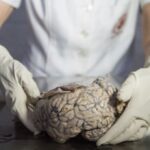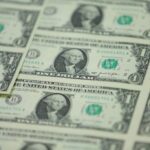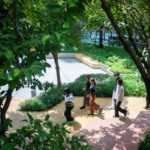
Asia’s top university’s school for public policy is named after Lee Kuan Yew: Singapore’s founding father.
That should give an idea as to what the Lee Kuan Yew School of Public Policy (LKYSPP) is all about.
Lee, who ruled the city-state as prime minister for 31 years, was deemed to be among the most influential global political figures of his era. It was his leadership that helped transform the tiny republic island into a regional economic powerhouse in less than two generations.
And from this legacy, Lee may have laid the foundation to the creation of what has likely become Singapore’s greatest asset: a super-efficient administration.
The success of his legacy can be traced all the way to China. Analysts concur leaders of the communist republic support Lee’s “authoritarian pragmatism”; China’s decision to shift from communism to an open market economy while maintaining tight political control at home was said to have been influenced by Singapore.
But an efficient government isn’t Singapore’s only trump card. With its universities constantly ranked among the world’s best and its schools coming up first in the Programme for International Student Assessment (PISA), its education system is arguably as powerful a political bargaining chip.
And what better way to win over countries in the region than to train its next crop of leaders in a Singaporean university?
At LKYSPP, 80 percent of the intake are from overseas, several times what universities elsewhere enrol.
This school is known to have among the best Public Policy, International Affairs, Public Management and Public Administration postgraduate courses.
And they only select the most committed, filtering applicants through a rigorous admission process.
On the university’s official website, LKYSPP said its aim was “to train the next generation of Asian policy-makers and leaders.”
In other words, it wants to expand the reach of Singapore’s “soft power”.
Coined by American political scientist, Joseph Nye, in the 1980s, soft power refers to a country’s ability to attract and co-opt by attracting and persuading. In contrast, “hard power” tries to get other countries to want what it wants through coercion, using force or money.
“Real power means you can get what you want without having to exert violence,” former US president Barack Obama, a leading advocate of soft power, said in an interview with The Atlantic.
https://www.facebook.com/nuslkyspp/posts/1561293810577176
Nye’s three pillars of soft power are political values, culture and foreign policy. They can come in the most subliminal form from food (McDonald’s) to popular culture (K-pop) and even social media savviness, as demonstrated by the new French President Emmanuel Macron.
Another is education.
“I can think of no more valuable asset to our country than the friendship of future world leaders who have been educated here,” former US Secretary of State, Colin Powell said in 2001.
Ong Kian Ming, a Member of Parliament in Malaysia, echoes Powell’s words in an interview with Asian Correspondent during a recruitment drive by LKYSPP held in Malaysian capital Kuala Lumpur.
Ong, who was educated at the city state’s Raffles Institution and Raffles Junior College as an Asean scholar, said:
“Civil servants who have gone through the Singaporean education system tend to adopt policies favourable to Singapore.”
Powell and Ong know the experience of LKYSPP graduates will translate into their future willingness to work with Singapore and lubricate future bilateral dealings with their home countries – a pretty handy outcome given the country’s geopolitical realities.
Considering its vulnerability, having a credible military and economic success – symbols of its hard power – is a given. Yet, it’s not quite enough for the island republic to survive and thrive.
To ensure its competitive edge, the country needed to supplement its hard power with soft power. In 1992, the country set up the Singapore Cooperation Programme (SCP) as the “the primary platform through which Singapore offers technical assistance… in human resource development and economic development … with other countries in lieu of providing direct financial assistance”.
Under the SCP, is the Singapore Scholarship Programme offered to Asean students to pursue a fulltime undergraduate degree in Singapore. Scholars are required to contribute to their home countries’ development after graduating.
Hundreds of scholarships have been awarded since its inception in 1998 and it is now permanently incorporated into the country’s annual programme, sealing the status of education diplomacy in its country’s foreign policy up until today.
And Singapore’s not the only Asian country leveraging on its education system as part of its soft power efforts.

Singapore uses a larger portion of its GDP on military spending, compared to Indonesia or Malaysia, according to World Bank figures. Source: Reuters/Edgar Su
China is not only luring a massive number of African students over to its universities on home soil, but is also building several transportation and aviation schools in the African continent, in addition to more than 20 Chinese-run agricultural training centres and 40 Chinese language schools, Confucius centres, across the continent.
But how effective is soft power anyway? Can countries really be coerced in ways other than economic incentives and force?
A few studies have attempted to measure soft power, such as Portland Communications’ Soft Power 30, which Nye has described as “the clearest picture of global soft power to date.”
The ranking is based on “the quality of a country’s political institutions, the extent of their cultural appeal, the strength of their diplomatic network, the global reputation of their higher education system, the attractiveness of their economic model as well as a country’s digital engagement with the world.”
Singapore is the only Southeast Asian country to make it into the annual index at 20th place and the only other Asian country apart from Japan at sixth place.
Education – measured by the number of international students it attracts, quality of universities and contribution to academic research publishing – was touted as one of its biggest strengths.
As its effects are indirect, it’s still too early to gauge LKYSPP’s role in shaping geopolitics. But judging from its admission requirements, the school is clear it only wants individuals who is on a clear trajectory to be persons of influence in their home countries’ public sector.

Singapore’s Foreign Minister Vivian Balakrishnan at the 7th East Asia Summit Foreign Ministers’ Meeting. Source: Reuters/Aaron Favila
And thus far, the 10-year old LKYSPP already counts several alumni in key government positions around the region: Panji Winanteya Ruky (2015, Master’s in Public Administration Alumni) is Policy Adviser to Indonesia’s President Joko Widodo, Duminda Ariyasinghe (2012, Master’s in Public
Management Alumni) is Director-General in the Board of Investment of Sri Lanka, and Vichara Chhy (2014, Master’s in Public Policy Alumni) is Under Secretary of State at Cambodia’s Civil Service Ministry.
With Singapore set to assume the role of Asean chair in 2018, it certainly doesn’t hurt to know it was LKYSPP that produced these alumni.
**This article first appeared on our sister site Asian Correspondent
Liked this? Then you’ll love these…
Singapore: Govt names university professor as foreign ‘agent’
More Singaporeans choose to study tech over law in university







